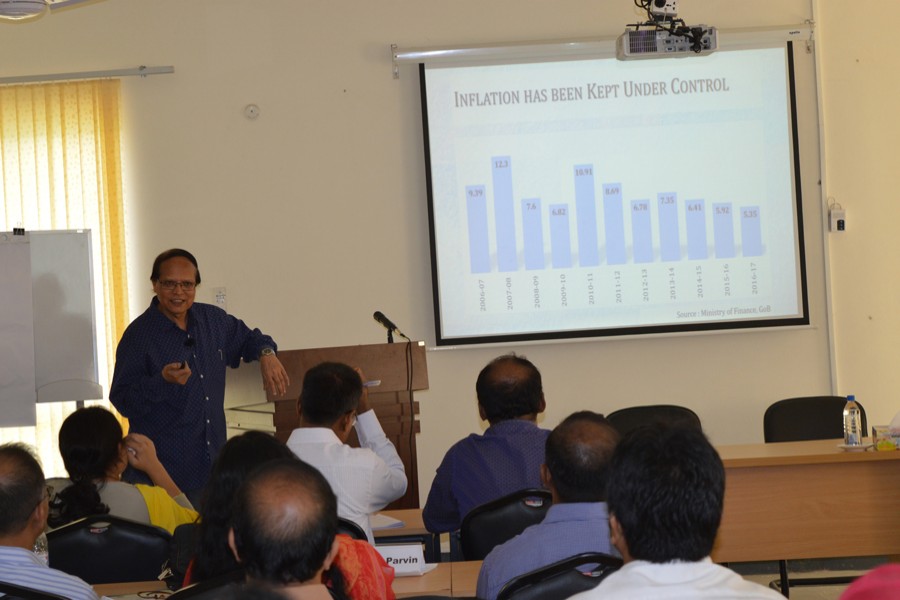Bangladesh Bank (BB) former governor Dr Atiur Rahman has suggested continuing to remain focused on the hard-earned financial stability for sustaining the macroeconomic transformation of Bangladesh.
He said this while speaking at a special capacity building session organised by the Bangladesh Institute of Governance and Management (BIGM) in the city on Monday, says a press release.
He further said Bangladesh's story of macroeconomic transformation is still unfolding and yet to be told.
He asserted that it was indeed heartening to see how an economy of only eight billion US dollars in 1972 transformed itself into the world's 43rd largest economy of around 280 billion US dollars within such a short span of time.
More interestingly, all the three sectors -- industry, services and agriculture -- demonstrated consistently stable upward trends leading to more than doubling of per capita income during the last decade, he said.
Simultaneously, the country not only witnessed a huge reduction in the poverty (including extreme poverty) rate over these years but also a significant improvement in other social development indicators embracing health, education and nutrition.
All this led to stunning increase in the life expectancy hitting more than 72 years, one of the highest in South Asia, he added.
This spectacular paradigm shift towards more inclusive and broader socio-economic transformation has been possible due to well-articulated and smart development policies of the government complemented by the Financial Inclusion strategy of the central bank, he observed.
These objectives include 1) high growth, yet inclusive, 2) respectful of heritage, yet tech-savvy, and 3) self-dependent, yet collaborative with non-state actors.
At the same time the economy of Bangladesh has been witnessing an addition of two million medium and advanced consumers (MAC) annually with per capita income of more than five thousand US dollars. These are brand --focused, tech-savvy new kinds of consumers with high-end market demand. There will be as many as 33 cities (currently 10) with at least three hundred thousand MAC population by 2025 creating a new consumer base, he opined.
The investors must keep an eye on this strategic market development as well as the opportunities, he suggested.
These macro-economic transformations are also facing many challenges including the need for creating 1.6 million new jobs annually, depleting natural resources like coal and gas, dependence on a single export item like garments, rapid unplanned urbanisation putting heavy pressure on needed infrastructure and city governance, he said.
These challenges have been further compounded by the threat of an emerging financial instability.
Given this context, "we must remain focused on creating new employment opportunities, particularly for the educated youths, promoting green energy, encouraging regional and sub-regional cooperation, supporting productive and sustainable agriculture, export-led industries in addition to apparels, tapping domestic consumer base, and, above all, maintaining financial stability at any cost", he suggested.
"We should also continue to promote an inclusive growth process which is adaptive to climate change, private sector-led, small and medium enterprises (SME)--focused and supported by widespread digitisation including burgeoning e-commerce".
"Finally we expect the government to focus on skills development and give everyone a chance to learn and push forward our fascinating development journey," he added.


